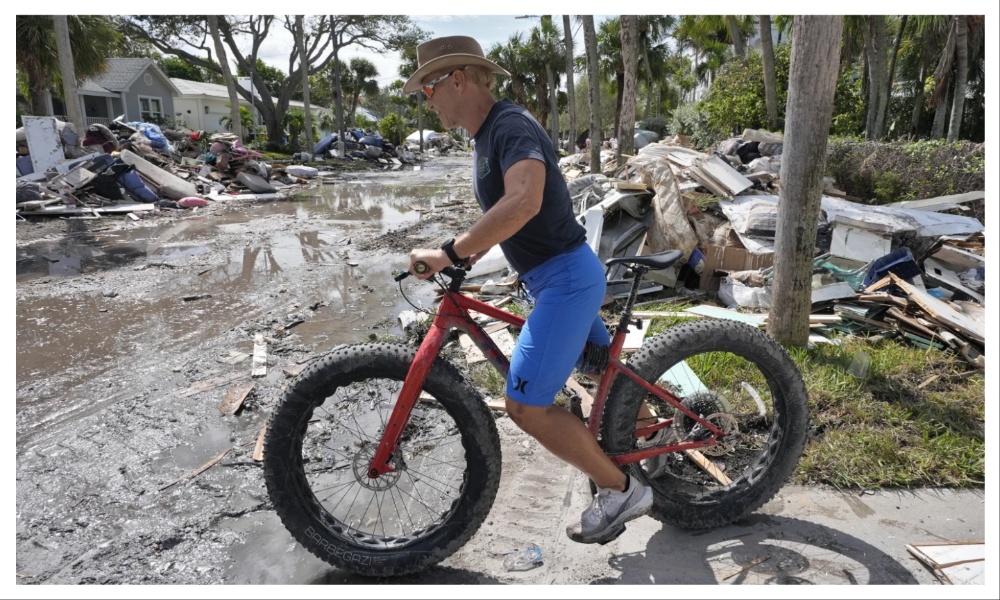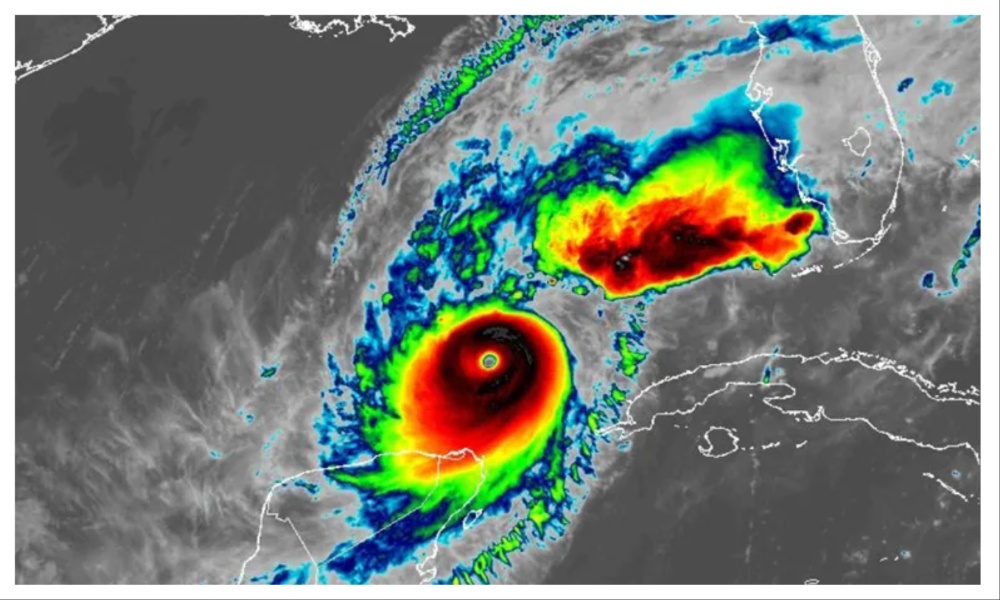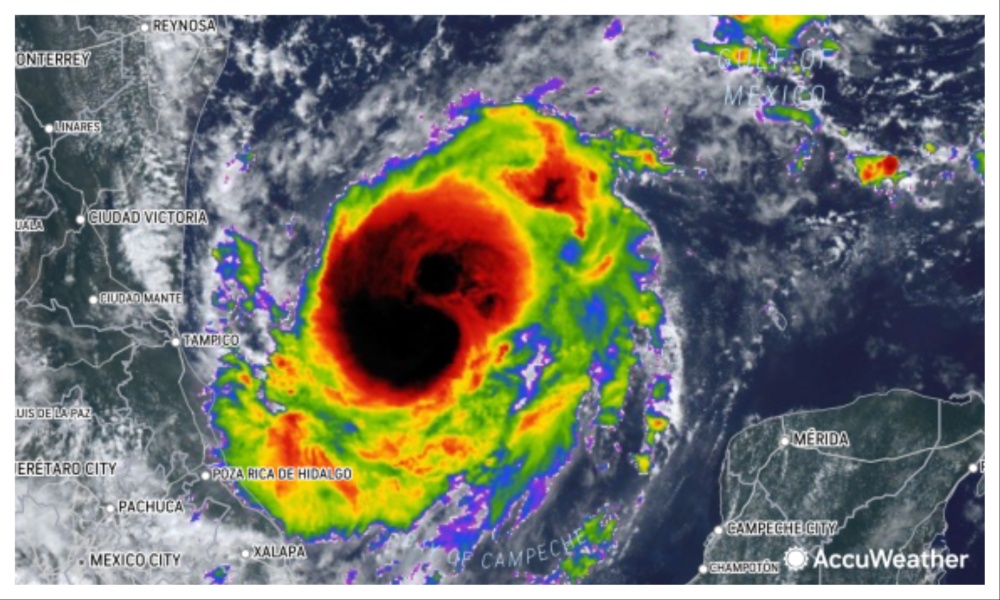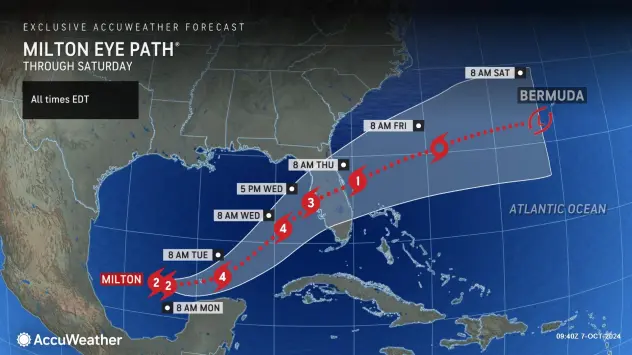Climate Change
2024 could be world’s hottest year as June breaks records
Greenhouse gas emissions from burning fossil fuels are the main cause of climate change.

Last month was the hottest June on record, the EU's climate change monitoring service said on Monday, continuing a streak of exceptional temperatures that some scientists said puts 2024 on track to be the world's hottest recorded year.
Every month since June 2023 - 13 months in a row - has ranked as the planet's hottest since records began, compared with the corresponding month in previous years, the European Union's Copernicus Climate Change Service (C3S) said in a monthly bulletin.
The latest data suggest 2024 could outrank 2023 as the hottest year since records began after human-caused climate change and the El Nino natural weather phenomenon both pushed temperatures to record highs in the year so far, some scientists said.
"I now estimate that there is an approximately 95% chance that 2024 beats 2023 to be the warmest year since global surface temperature records began in the mid-1800s," said Zeke Hausfather, a research scientist at U.S. non-profit Berkeley Earth.
The changed climate has already unleashed disastrous consequences around the world in 2024.
More than 1,000 people died in fierce heat during the haj pilgrimage last month. Heat deaths were recorded in New Dehli, which endured an unprecedentedly long heatwave, and amongst tourists in Greece.
Friederike Otto, a climate scientist at Imperial College London's Grantham Institute, said there was a "high chance" 2024 would rank as the hottest year on record.
"El Nino is a naturally occurring phenomenon that will always come and go. We can't stop El Nino, but we can stop burning oil, gas, and coal," she said.
The natural El Nino phenomenon, which warms the surface waters in the eastern Pacific Ocean, tends to raise global average temperatures.
That effect subsided in recent months, with the world now in neutral conditions before cooler La Nina conditions are expected to form later this year.
C3S' dataset goes back to 1940, which the scientists cross-checked with other data to confirm that last month was the hottest June since the 1850-1900 pre-industrial period.
Greenhouse gas emissions from burning fossil fuels are the main cause of climate change.
Despite promises to curb global warming, countries have so far failed collectively to reduce these emissions, pushing temperatures steadily higher for decades.
In the 12 months ending in June, the world's average temperature was the highest on record for any such period, at 1.64 degrees Celsius above the pre-industrial average, C3S said. - Reuters
Climate Change
Hurricane Milton marches across central Florida, destroying homes
A flash flood emergency was in effect for the Tampa Bay area including the cities of Tampa, St. Petersburg and Clearwater, the hurricane center said, with St. Petersburg already receiving 16.6 inches (422 mm) of rain on Wednesday.

Hurricane Milton marched across central Florida on Thursday after making landfall on the state's west coast hours earlier, whipping up deadly tornadoes, destroying homes and knocking out power to nearly 2 million customers.
The storm made landfall around 8:30 p.m. EDT (0030 GMT) on Wednesday as a Category 3 hurricane with maximum sustained winds of 120 miles per hour (195 kph) near Siesta Key, the U.S. National Hurricane Center said.
By 11 p.m. EDT (0300 GMT), wind speeds had reduced to 105 mph (165 kph), dropping Milton to a Category 2 hurricane, nonetheless still considered extremely dangerous. The eye of the storm was 75 miles (120 km) southwest of Orlando in the center of the state, Reuters reported.
A flash flood emergency was in effect for the Tampa Bay area including the cities of Tampa, St. Petersburg and Clearwater, the hurricane center said, with St. Petersburg already receiving 16.6 inches (422 mm) of rain on Wednesday.
The eye of the storm landed in Siesta Key, a barrier island town of some 5,400 off Sarasota about 60 miles (100 km) south of the Tampa Bay metropolitan area, which is home to more than 3 million people.
Governor Ron DeSantis said he hoped Tampa Bay, once seen as the potential bull's eye, could dodge major damage and that the worst of the predicted storm surge could be avoided thanks to the landfall coming before the high tide. Forecasters said seawater could still rise as high as 13 feet (4 meters).
DeSantis reported Milton had also spawned at least 19 tornadoes caused damage in numerous counties, destroying around 125 homes, most of them mobile homes.
"At this point, it's too dangerous to evacuate safely, so you have to shelter in place and just hunker down," DeSantis said upon announcing the landfall.
At least two deaths were reported at a retirement community following a suspected tornado in Fort Pierce on the eastern coast of Florida, NBC News reported, citing St. Lucie County Sheriff Keith Pearson. His department did not immediately respond to a request for details.
Pearson estimated 100 homes were destroyed in the county where some 17 tornadoes touched down, NBC said.
More than 1.8 million homes and businesses in Florida were without power, according to PowerOutage.us.
The storm was expected to cross the Florida peninsula overnight and emerge into the Atlantic, still with hurricane force, on Thursday.
Once past Florida, it should weaken over the western Atlantic, possibly dropping below hurricane strength but still posing a storm-surge danger on the state's Atlantic Coast.
In a state already battered by Hurricane Helene two weeks ago, as many as two million people were ordered to evacuate, and millions more live in the projected path of the storm.
Much of the southern U.S. experienced the deadly force of Hurricane Helene as it cut a swath of devastation through Florida and several other states. Both storms are expected to cause billions of dollars in damage.
ZOO ANIMALS PROTECTED
While human evacuees jammed the highways and created gasoline shortages, animals including African elephants, Caribbean flamingos and pygmy hippos were riding out the storm at Tampa's zoo.
Nearly a quarter of Florida's gasoline stations were out of fuel on Wednesday afternoon.
The Federal Emergency Management Agency had moved millions of liters (gallons) of water, millions of meals and other supplies and personnel into the area. None of the additional aid will detract from recovery efforts for Hurricane Helene, the agency's administrator, Deanne Criswell, said earlier on Wednesday.
Trucks have been running 24 hours a day to clear mounds of debris left behind by Helene before Milton potentially turned them into dangerous projectiles, DeSantis said.
About 9,000 National Guard personnel were deployed in Florida, ready to assist recovery efforts, as were 50,000 electricity grid workers in anticipating of widespread power outages, DeSantis said.
Search-and-rescue teams were prepared to head out as soon as the storm passes, working through the night if needed, DeSantis said.
"It's going to mean pretty much all the rescues are going to be done in the dark, in the middle of the night, but that's fine. They're going to do that," DeSantis said.
Climate Change
Time to evacuate is running out as Hurricane Milton closes in on Florida
Tampa Mayor Jane Castor warned residents to leave the city and said those who stayed behind could face death

Hurricane Milton churned Wednesday toward a potentially catastrophic collision along the west coast of Florida, where some residents insisted they would stay after millions were ordered to evacuate and officials warned that those who stayed behind could die.
The Tampa Bay area, home to more than 3.3 million people, faced the possibility of widespread destruction after avoiding direct hits from major hurricanes for more than a century, Associated Press reported.
The National Hurricane Center predicted Milton, a monstrous Category 5 hurricane during much of its approach, would likely weaken but remain a major hurricane when it makes landfall late Wednesday.
Milton was centered early Wednesday about 580 kilometers southwest of Tampa with maximum sustained winds of 260 km/h, the National Hurricane Center reported.
[caption id="attachment_624814" align="alignnone" width="1000"] Hurricane Milton remains a powerful Category 5 storm with 260km/h winds on way to Florida[/caption]
Hurricane Milton remains a powerful Category 5 storm with 260km/h winds on way to Florida[/caption]
Forecasters predicted the storm will retain hurricane strength as it crosses central Florida on Thursday on a path east toward the Atlantic Ocean. The hurricane’s precise track remained uncertain, as forecasters Tuesday evening nudged its projected path slightly south of Tampa.
Tampa Mayor Jane Castor warned residents to leave the city and said those who stayed behind could face death.
Two major concerns had authorities worried early Wednesday. One was the expected storm surge of 4.5 meters, which would be deep enough to swallow an entire house.
Secondly, piles of debris in the streets from Hurricane Helene two weeks ago was another major worry for authorities who said the debris could become deadly projectiles in the winds.
Authorities have issued mandatory evacuation orders across 11 Florida counties with a combined population of about 5.9 million people, according to U.S. Census Bureau estimates.
Officials have warned that anyone staying behind must fend for themselves, as first responders are not expected to risk their lives attempting rescues at the height of the storm.
Climate Change
State of Emergency declared in Florida ahead of hurricane Milton
Weather experts say impacts ranging from a devastating storm surge to major flooding from rain, damaging wind gusts, pounding surf and tornadoes are expected in Florida

A state of emergency has been declared in Florida ahead of Milton, which is forecast to plow into the western peninsula on Wednesday as a major hurricane
This comes just days after the devastating Hurricane Helene caused extensive damage to the region earlier this month.
Milton, another significant tropical threat to the US, is lurking in the Gulf of Mexico, AccuWeather experts have reported.
These weather experts say impacts ranging from a devastating storm surge to major flooding from rain, damaging wind gusts, pounding surf and tornadoes are expected in Florida.
Because of the risk, Florida Governor Ron DeSantis has declared a state of emergency and is urging that preparations to protect life and property should begin immediately.
“This is an unusual and extremely concerning forecast track for a hurricane approaching the Tampa Bay area,” warned AccuWeather Chief Meteorologist Jonathan Porter.
“Milton could rapidly intensify into a major hurricane with extreme impacts. This hurricane could create a life-threatening storm surge,” he said.
AccuWeather meteorologists reported Monday that before Milton moves ashore in Florida, it will have ample time to rapidly strengthen over the very warm waters of the Gulf of Mexico. T
"The ocean heat content is at the highest level on record for this time of year in the Gulf, despite the recent passage of Helene," added AccuWeather Lead Hurricane Forecaster Alex DaSilva.
"The deep, warm waters can act like rocket fuel for Milton, allowing for rapid intensification."
The threat posed by heavy rain will precede Milton's arrival by several days. Heavy rain was already falling over the Florida peninsula this weekend, and will continue through the early part of the week, well ahead of impacts from wind and storm surge.
Milton is the thirteenth named storm of the 2024 Atlantic hurricane season. Hurricanes Kirk and Leslie were also churning across the open Atlantic as of late this weekend, though neither pose an immediate, direct threat to land.
-

 Sport4 days ago
Sport4 days agoAfghanistan A make ACC Emerging Asia Cup semis despite Hong Kong’s win
-

 Sport4 days ago
Sport4 days agoAfghanistan volleyball team tumbles 3-2 to Tajikistan
-

 Sport4 days ago
Sport4 days agoACB names squad for Afghanistan’s ODI series against Bangladesh
-

 Latest News5 days ago
Latest News5 days agoAfghanistan’s wheat production for this year up by 10%
-

 Latest News5 days ago
Latest News5 days agoGhazni dam project underway after initial survey conducted
-

 Latest News5 days ago
Latest News5 days agoBRICS summit gets underway in Kazan, Russia
-

 Health4 days ago
Health4 days agoAIJU seals deal with private hospital for Afghan media workers
-

 Latest News3 days ago
Latest News3 days agoWife of late boxing legend Mohammad Ali to visit Kabul

























